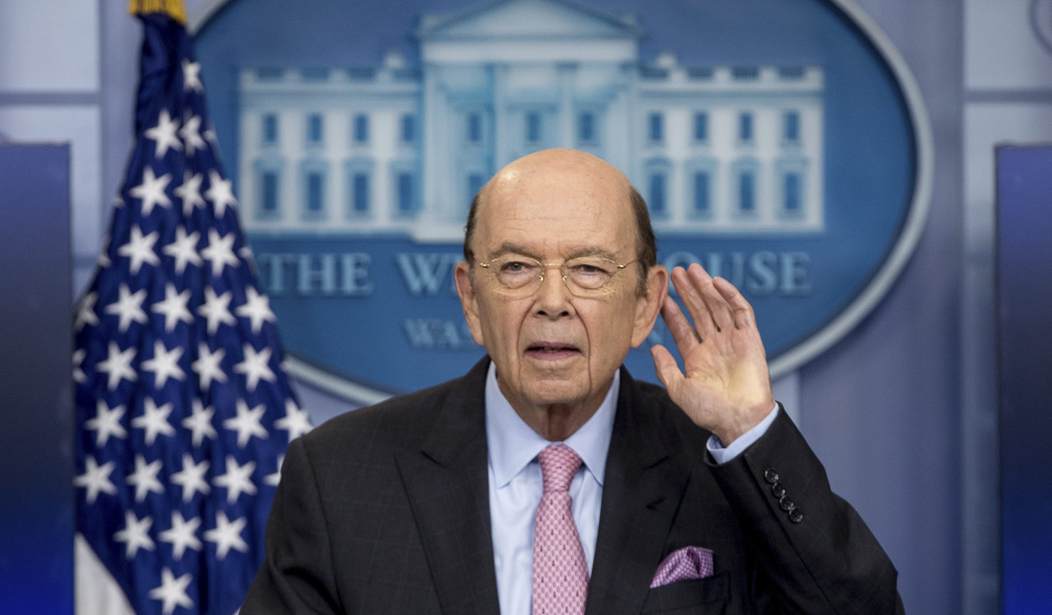WASHINGTON – Commerce Secretary Wilbur Ross said American companies are not “meeting” the demand for high-quality products, services and infrastructure in Africa.
Ross said economic growth and “demographic trends across Africa” are translating into “rising buying power” and a demand for quality is increasing.
“American companies should be meeting this demand. However, it’s not happening. Last year, U.S. exports to Africa hit a 10-year low just two years after an all-time high. Now, I know that African imports are down, but we are also losing market share. The market itself, we can’t control. We know that commodity prices have a strong influence on the total trade statistics with Africa, but the part we can try to control is our market share and U.S. exports to Africa account for only around 2 percent of our total exports to the world,” Ross said during a conference call with members of President Trump’s Advisory Council on Doing Business in Africa on Tuesday.
“The demand is there and it will grow and our competitors are capitalizing, so there’s vast potential for us to reverse this trend. As you said in your letter, we must work together to drive U.S. exports and jobs,” he added, referencing a letter that members of the council had previously sent to Trump.
Ross said some American companies have not considered “exploring opportunities” in Africa while others are looking to expand their operations. Ross asked the members of the advisory council to recommend ways U.S. companies should approach the African market, compete and operate within the market.
“What are the greatest opportunities you see for American companies in West Africa and East Africa and Central Africa and in Southern Africa? And for each of these three stages, I would request you to compile the keys to success you can share with us and, more importantly, with other American companies,” Ross said.
“Particularly when it comes to the approaching phase, I encourage you to gather input from other industry peers who are not members of the council. It would be especially useful to learn why some have at least tentatively decided not to enter these markets so that we can see if there’s something we can do to change their view. We do know your work will inform the Trump administration’s economic and commercial strategy for Africa that’s currently being developed by the National Security Council,” he added.
Ross said the Trump administration wants to have a strategy for U.S. economic involvement in Africa ready for implementation by the start of next year.
“The goal is to have that strategy in place by the start of calendar year 2018, and so we request you to deliver your report by the end of October of this year,” he said on the conference call.
Ross told the members of the Africa advisory council that he supports their idea of going on a “fact-finding” trip to one or more countries in Africa.
“I support this idea, including the proposal that I or a designee would join this trip. This could be something to look at and get organized for the second calendar quarter of 2018 and in fact, in your report, you might suggest an itinerary,” he said. “Your work on the present tasking will pave the way for that trip and a more in-depth targeted analysis of specific countries.”
President/CEO Bill Killeen of Acrow Bridge, which manufactures steel bridges, said his company is “actively pursuing” the African market as it develops.
“Bridges are in dire need to provide that connectivity between countries and between regions, so that’s what I can share with you,” he said.
President/CEO Dow Wilson of Varian Medical Systems said some business are not “present” in Africa because it has been a small market for a long time but it is now moving fast. According to Wilson, the demand for his company’s medical products has expanded in the past five years.
“Working with this council and the support of the U.S. government has been critical for us to grow in Africa, and I think that’s true for all of our healthcare sisters and brothers out there in the marketplace,” he said. “The competition is very real, especially coming out of Asia. And to go in with both private industry and U.S. government support is just vital.”









Join the conversation as a VIP Member